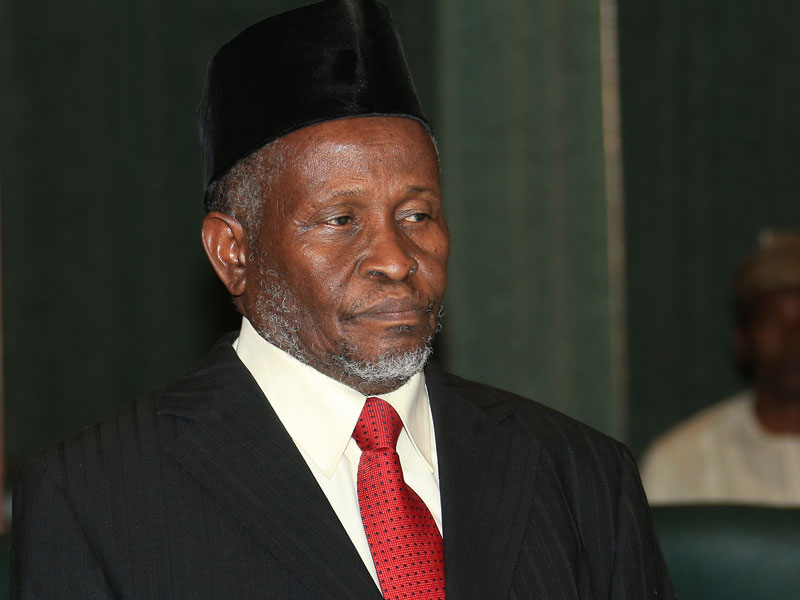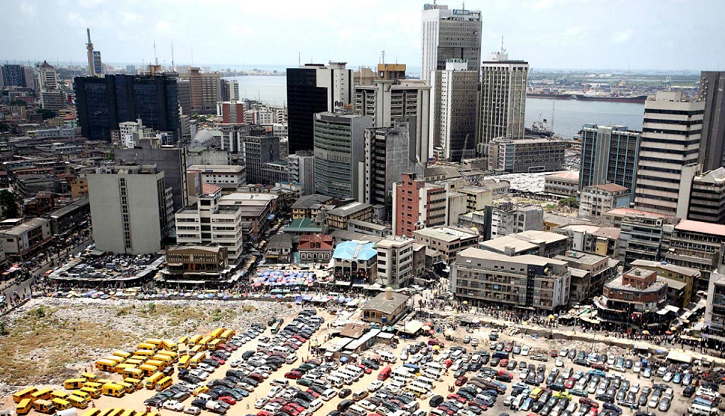Parties deregistration: INEC sticks to its gun as Court halts action

.Says court can’t stop action already taken
.The parties have legal rights which must be protected -Judge
The Independent National Electoral Commission (INEC) has said there is no going back on the recent deregistration of 74 political parties.
The Daily Times recalls that the Federal High Court, Abuja, on Monday, restrained Commission from de-registering 31 political parties, pending the hearing of a suit challenging the powers of INEC to deregister.

Justice Anwuli Chikere, gave the order while ruling on an interlocutory injunction brought by 31 political parties that had filed a suit against the Attorney General of the Federation and Minister of Justice and INEC over impending de – registration of political parties. Their action was instituted in March last year and they brought an amended motion on October 29, 2019.
Though the restraining order is coming 11 days after the electoral commission deregistered 74 political parties, Justice Chikere however adjourned till February 27 for hearing in the substantive suit.
The court had on January 23 fixed the ruling for Monday February 17, after counsel to the plaintiffs, Mr. Kehinde Edun, moved and argued the interlocutory motion.
Surprisingly, the Independent National Electoral Commission which had ignored the plaintiffs’ suit and neglected to appear in court, announced the delisting of 74 political parties on February 6, 2020.
The plaintiffs, Advanced Congress of Democrats (ACD), Advanced Nigerian Democratic Party (ANDP), All Blending Party (ABP) and 30 others had in March last year dragged the AGF and INEC before the Federal High Court over planned de-registeration of political parties.
Justice Chikere in the ruling held that the parties have legal rights which must be protected. Consequently, she ordered the defendants to maintain status quo pending the hearing and determination of the main suit.
In the main suit marked FHC/ABJ/CS/444/2019, the plaintiffs asked the court to determine whether the provisions of sections 225A b(I), b(ii), c(I), c(ii) c(iii) of the 1999 constitution, introduced by the 4th Alteration Act number 9 of 2017, are to be construed disjunctively/alternatively or whether they are to be construed conjunctively.
“Whether the 2nd defendant can exercise any power under section 225A (b) and (c) of the 1999 constitution without conclusive and democratic elections be first heard and concluded into all electoral constituencies of the federation.
“Whether having regards to the lack of authority by the 2nd defendant to conduct and determine the winners for chairmanship and councillorship elections into Local Government and Wards in the federation the 2nd defendant should be allowed to exercise power to de-register political parties for failure to win election into such seats” and others.
The plaintiffs said if the above questions are in the affirmative, the court should declare that the provisions of sections 225A b(I) , b(ii), c(I), c(ii) c(iii) of the 1999 constitution, introduced by the 4th Alteration Act number 9 of 2017, are intended to be construed dis-junctively.
“A declaration that the power conferred on the 2nd defendant by section 225A (b) and (c) of the 1999 constitution to de-register political parties could not have been intended to have any retro-active effect and as such election into all electoral constituencies must first be held before the power of the second defendant under this can accrue”.
They therefore prayed the court for an order of injunction restraining the 2nd defendant from exercising the powers conferred on it by section 225A (1)) and (c) o’ the Constitution of the Federal Republic of Nigeria, I999 until conclusive and democratic elections are held into the presidency, all Governorship, National Assembly, State Assembly, Local Government Chairmanship and Councillorship positions in the Federation, which elections must have been held after this section was introduced.
“An order of injunction restraining the second defendant from exercising its powers to de-register the plaintiffs or any political party for that matter as the second defendant does not have the powers to conduct election into all the positions listed in section 225 A(b) and (c) of the 1999 constitution.
“An order of injunction restraining the second defendant from deregistering the Plaintiffs or any political party for that matter for failure to win seats or certain percentages of the vote cast at the 20I9 general election as these political parties could have won but for irregularities and cancellations perpetrated by persons who are not agents of the political parties”.
The plaintiffs counsel told journalists after the ruling that he had on Friday brought an application seeking an order of mandatory injunction for the court to compel INEC to restore the political parties to status quo, the motion was supported by an affidavit of urgency.
However, the Independent National Electoral Commission (INEC), on Monday, said the injunction granted by the court cannot stop an action it already took.
Reacting to the injunction, INEC’s Director, Voters Education and Publicity, Oluwole Ozzase – Uzi, on Monday, in Abuja, said the commission has not gotten a copy of the injunction, and it stands on the delisting of the parties.
The Director said: “Ordinarily, Courts don’t grant injunctions to stop an act which has already been done. We haven’t seen the order so it’s difficult for us to comment on it.
“Perhaps, the fact of deregistration wasn’t brought to the Court’s attention. I am aware that this was mentioned in Court today (yesterday) by the plaintiffs’ lawyer but their application to restore the plaintiffs as registered political parties wasn’t taken today (yesterday).
“This motion is still pending. The court has granted accelerated hearing of the case”.
The commission, on 6 February, 2020, deregisted 74 political parties over poor performance in the 2019 general election and failing to meet certain constitutional requirements but pronounced 18 parties healthy for future polls.








